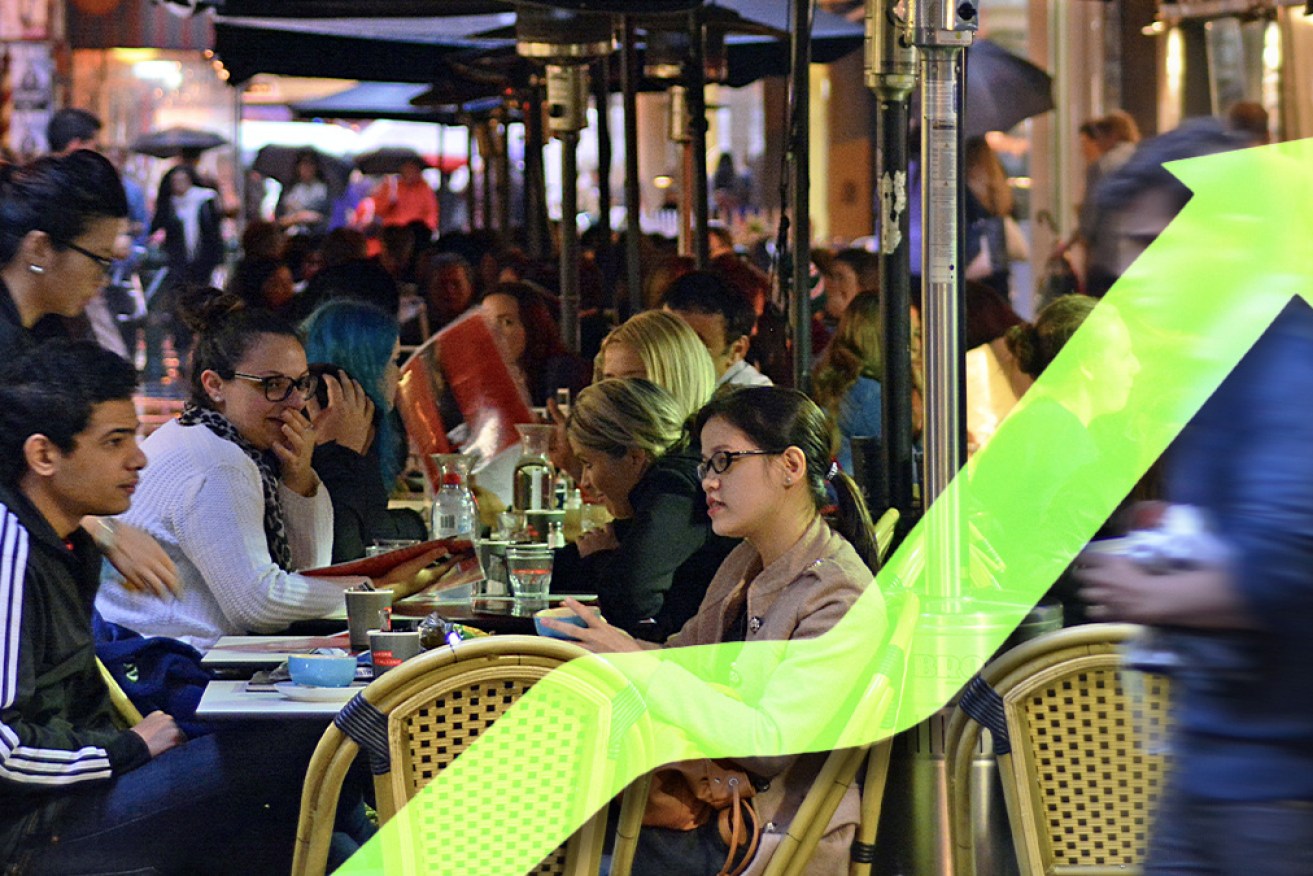Help wanted: Hospitality revival underway but staff shortages are biting


Hospitality has staged a remarkable comeback, but significant issues remain. Photo: TND
Australia’s restaurants, bars and cafes are back in the swing of things a year after the worst month in the industry’s history.
After losing more than $900 million in monthly sales overnight when COVID-19 lockdowns hit, hospitality businesses have now officially eclipsed their pre-pandemic sales, according to the latest ABS data.
And what’s more remarkable is that many firms are doing even better.
Sales data from 10,000 hospitality businesses compiled for The New Daily by point-of-sale provider Lightspeed reveals revenue was about 30 per cent higher in April than pre-pandemic levels – marking an exceptional turnaround.
To be sure, the rebound is patchy.
Businesses in CBD areas are still wondering when their office workers are coming back, and cafes in particular are still struggling, with revenue recovering just 73 per cent so far.
But if you had asked Melbourne business owner Liam Ganley this time last year whether his sales would be 20 per cent above pre-COVID levels in January 2021, he would have laughed you out of the room.
“When we locked down initially we tried to do takeaway, but it wasn’t sustainable. We were losing too much money,” Mr Ganley said.
“We were essentially shutdown. We lost a lot of money. It was terrible.”
Mr Ganley, owner of Angus & Bon, Freddie Wimpoles and the Fifth Province venues in Melbourne, is now preparing for a big Mother’s Day weekend, and while a snap lockdown is still possible, he’s feeling much more optimistic about the future.
And he isn’t the only one.

Business owner Liam Ganley.
Restaurant sales increased 136 per cent annually in April, according to Lightspeed, as the recovery gathered steam.
John-Paul Romano, owner of Italian Brothers bar and cafe in Canberra, said his sales have picked up so much that he hasn’t revised his 2019 business plan.
That’s despite most of last year being consumed by the pandemic.
“It all comes back to consumer confidence,” Mr Romano told The New Daily.
“When people see the news that there’s vaccines coming out, or people are getting vaccinated in the community, then people feel confident.”
Chrissie Maus, general manager of Melbourne’s Chapel Street precinct, is also witnessing a hospitality revival on the famous inner-city restaurant strip.
“Our night-time economy is the best it has been in a decade and weekends are literally going off, with bars restaurants and cafes reporting some of their best numbers,” Ms Maus told TND.
Help wanted
It’s not all sunshine and roses, though.
Mr Ganley is predicting a long winter for the hospitality sector, with JobKeeper subsidies and rent deferrals no longer in place to offer assistance.
“All these businesses have been getting subsidies so they’ve been able to weather the storm, but they’re all falling away … even the extended dining and road closures have disappeared,” Mr Ganley said.
“Coming into next summer, there’s going to be a lot of for-lease signs up outside hospitality venues.”
The biggest issue plaguing Mr Ganley and others are staff shortages.
To put it bluntly, ongoing border closures mean there aren’t enough migrant workers in Australia to fill kitchens, bars and dining rooms.
“We cannot get staff … we’ve had ads on every advertising platform there is, but we cannot get people into roles,” Mr Ganley said.
“Even with the easing of restrictions we haven’t been able to open up bookings fully because we don’t have the staff to fill them. It’s our biggest worry moving forward now – how are we going to get staff?”
Restaurant and Catering Association chief executive Wes Lambert said skills shortages are a nation-wide issue.
“We have 600,000 fewer people in Australia right now than we did pre-COVID, of which about 200,000 had the right to work – working holiday makers have fallen to just 46,000,” Mr Lambert told TND.
“The entire system was designed and has been operating for decades with net migration, and so when there’s negative migration there’s no way to rapidly fill the 100,000 places in hospitality.”
Mr Lambert said he knows of one business that is struggling to find a sommelier, despite offering a generous $90,000-a-year salary, plus superannuation.
Australia may need to create upwards of 200,000 jobs by this year to address issues like that, according to Xero estimates published on Wednesday.
But Mr Lambert said the reality is there are no easy solutions to the problem, short of speeding up the vaccine rollout and reopening borders.
Mr Romano, who has only had three applications for a job ad listed last week, isn’t hopeful the worker shortages will resolve anytime soon, either.
“We’ve got to play it safe,” he said.
“The last thing we want is to end up in lock down again, because that’s the worst thing possible for business.”








